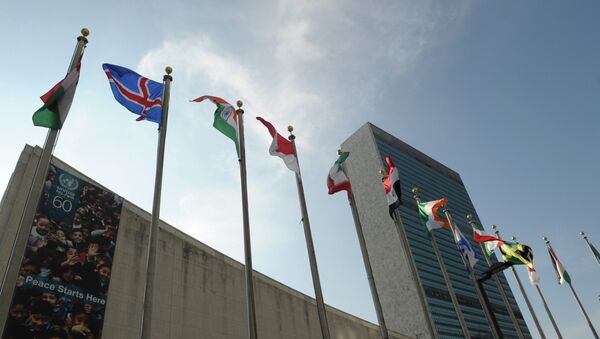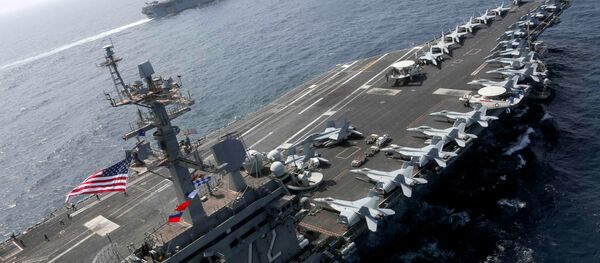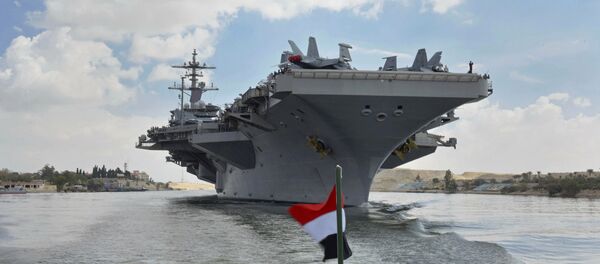Iranian permanent representative to the UN Majid Takht-e-Ravanchi published an opinion piece in the Washington Post, in which he detailed the hardships Tehran faces when dealing with the US.
The representative outlines three major obstacles that block the path to a diplomatic resolution of the current international crisis, which appears to have all signs of escalating into an imminent war.
First, the representative writes, one cannot hope for diplomatic success when combining talks with "intimidation, coercion and sanctions." According to Takht-e-Ravanchi, genuine dialogue is only possible "if both sides accept the principle of mutual respect and act on equal footing."
Second, it is impossible to talk to the US, considering that the US does not act as a "united voice." While some US officials are eager to establish discourse, others are actively "working to sabotage the possibility of useful and meaningful dialogue."
Finally, the diplomatic reputation of the US has been significantly damaged following Trump's sudden withdrawal from the Iranian deal last year. According to the Iranian envoy, Tehran now has no certainty any future agreement won't meet a similar fate.
In his article, Takht-e-Ravanchi reiterated that Iran decided to abolish some voluntary obligations it imposed on itself under the Iranian deal because the EU failed to provide an effective mechanism of shielding Iran from re-imposed US sanctions. Despite the fact that the EU did come up with a Special Payment Vehicle, known as INSTEX, it is still being negotiated and is limited to essentials, such as food and medicine, according to Bloomberg.
The United States has recently ramped up its military presence around Iran, relocating forces to Iraq and the Arabian Sea. Friday a Fars News Agency report citing Iraqi MP Karim al-Mohammadawi suggested there are already up to 50,000 combat troops — not military advisors — outfitted with state-of-the-art equipment. The US military also reportedly initiated the relocation of armoured vehicles from Jordan and mulls sending Patriot anti-air systems there as well. The aircraft carrier USS Abraham Lincoln was also dispatched to the Arabian Sea. Despite all these measures, US President Trump keeps saying he does not want a war with Iran and previously put effort into withdrawing US troops from other Middle Eastern nations.
Under the so-called Iranian deal — formally known as JCPOA — Iran was obliged to significantly reduce its stockpile of enriched uranium, limit its uranium enrichment and heavy water production, and close most of its uranium enrichment facilities. In return, Iran was to be relieved from US, EU and UN nuclear-related sanctions. After US withdrawal in 2018, Iran and other signatories pledged to uphold the deal, but so far the sanctions evasion mechanism has not proven its effectiveness.





